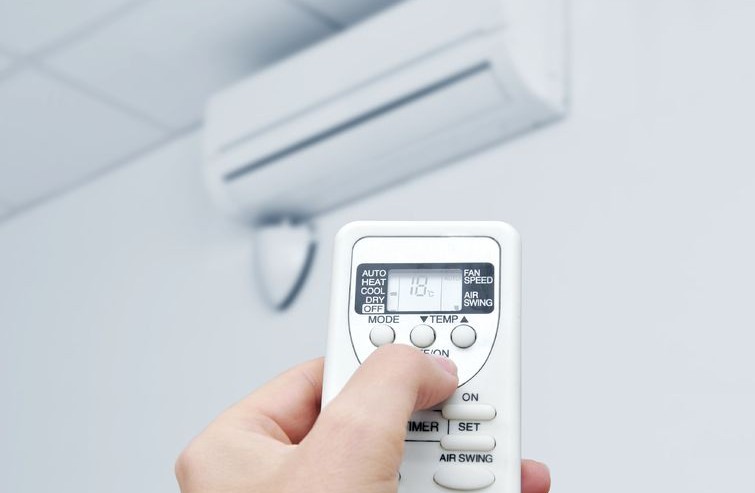What Kind of Air Conditioner is Best for My Home?
For anyone who has decided to finally bite the bullet and opt for an air conditioning installation or air conditioning system replacement, they may be wondering what type of system they should choose. The truth is that all systems have their own advantages and disadvantages, and the one you decide on all depends on the space you are trying to cool, what you are willing to invest and the climate in which you live.
Here are the most common air conditioner options and which types of situations they might serve best:
Window Units
The most basic AC solution widely-seen in many buildings. These are favored because their low purchase cost and ease of installation, but they are often too inefficient to cool anything other than one small room at a time. Their effectiveness also depends on the ventilation of the room, otherwise hot air will linger in the corners or come in from other areas of the house. Ideally, these are good for small, well-ventilated areas, like a bedroom.
Advantages
- Can be bought cheaply and installed by the homeowner or resident
- Simple installation process usually does not require modification of the house
Disadvantages
- Provides poor seal, leading to inefficiency
- Does not circulate air adequately for larger spaces or homes
- Compressor and fan are often noisy
as you know...
Stand Alone Units
These sit on the floor like a space heater and pull in hot air, cool it and push the cooled air through the room. The heat from the compressor and coils is then pushed back out of the room. Single hose systems perform this task by pulling in and pushing out hot air through a single hose, which is highly inefficient. Dual hose systems do a better job by using separate hoses for pulling in and pushing out hot air.
Overall, these systems take up space and end up being more inefficient than most window units. They should only be used as a last resort to people who have no usable windows or cannot modify the property in any way.
Advantages
- Relatively low purchase cost
- No installation required other than hose placement
- Option for people who do not have big enough windows for window unit
Disadvantages
- Usually costs more than most mid-range window units
- Takes up floor space
- Very noisy
- Invites problems of pressure differences and uneven heat circulation, making AC work against itself and driving up energy costs
Built-In/Wall Units
These operate on roughly the same principle as window units, but they must be installed by cutting a hole through the building wall into the exterior. This process creates a tighter seal, leading to more efficiency than the typical window unit. It also allows placing the unit wherever you think would be best, not just in the only available window.
Advantages
- More efficient than window unit
- Can be placed almost anywhere where conduits, pipe, studs, etc. do not interfere
- Easier maintenance than other systems
Disadvantages
- Requires professional installation for a system that only cools 1-2 rooms
- Generates almost as much noise as window unit
- Doesn’t always cool evenly
Split/Ductless Systems
This AC system has been rapidly growing in popularity, especially in buildings that are not conducive to central air or regions that do not see sky-high temperatures. Even still, new homes in desert regions like Las Vegas can use a ductless system with excellent results.
These systems work by installing a medium-sized compressor/condenser unit outside and piping the cooled refrigerant to individual evaporator/fan units throughout the house. They have almost all of the features of central systems, but without the added effort or expense of installing ducts throughout the house.
Advantages
- Cheaper and less invasive to install than central systems
- Perfect for homes with old or unusual construction
- Low profile units that are much quieter and unnoticeable compared to window units or built-ins
- Added efficiency from not having air blowing through ducts, where they lose around 20% of their coolness
- Sophisticated options like central thermostat or heat pumps
- Smaller outdoor units generally make less noise and take up less space compared to central systems
Disadvantages
- More expensive to install than window/wall units (although split systems are more permanent)
- Filtration occurs in each evaporator/fan
- More moving parts from each indoor unit increases chances of repair/replacement
- Typically no central intake to ensure proper circulation
Central AC
Central AC is the “granddaddy” of all cooling options and provides the most permanent and comprehensive solution. Nearly all processes take place outdoors, reducing noise and exhausting heat completely from the home. The systems are also practically invisible, only revealing themselves through air registers in each room. A majority of homeowners would benefit from investing in these systems over others as long as their building can accommodate ducting.
Advantages
- Highly efficient air circulation and filtration
- Practically invisible profile in-home
- Reduced complexity for maintenance because of one central unit
- Ability to install multiple registers per room is more cost effective for most homes than several split system indoor units
Disadvantages
- Almost always the highest cost
- Many buildings may not permit ducting
- Ducting causes air to lose 20% of coolness during travel
No matter what solution you choose, make sure to consult the guidelines for your room’s or home’s interior volume and your desired BTU of cooling. Even central systems can be rendered ineffective if, for example, too many ducts are used, which creates too low of pressure to work properly. Your home size, climate, personal preferences and budget will all factor into your decision.
Are you in the market for a new heating and air conditioning system? Click here to get free custom quotes from reputable HVAC contractors. You’ll receive upfront pricing without having to invite a contractor to your home or even enter your contact information!
Related articles
What are the Benefits of a Central Heating and Cooling System?
What are the Different Types of Heating Systems?
The Most Efficient HVAC Systems & How They Can Save You Thousands





Comments
Comments are disabled for this post